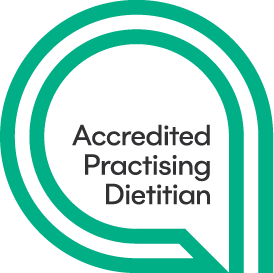Vitamin D deficiency affects around 1 billion people making it one of the biggest nutritional issues worldwide and is therefore a concern for the whole population, not only for vegans. It’s believed that there could be a significant reduction in most healthcare costs related to diseases associated with vitamin D deficiency and insufficiency if more of the population had adequate levels of this important vitamin. Should you bare your skin to the sun every day to prevent a deficiency or should we wear sunscreen and cover up because of the harmful rays the sun emits?
Vitamin D is a fat-soluble vitamin naturally present in very few foods, especially vegan foods. Therefore, sunlight or supplementation is recommended for those who are vegan. Vitamin D is important because it works with calcium to ensure healthy development and growth of bones and to prevents soft bones (resulting in rickets in children). It is known as the sunshine vitamin because vitamin D is most commonly associated with the sun. When our skin is exposed to sunlight, it manufactures vitamin D. The sun’s ultraviolet B (UVB) rays interact with a protein called 7-DHC in the skin, converting it into vitamin D3, the active form of vitamin D. Vitamin D is in fact a pro hormone rather than a vitamin. Our body makes vitamin D in a chemical reaction that occurs when sunlight hits the skin. This reaction produces cholecalciferol, and the liver converts it to calcidiol. The kidneys then convert the substance to calcitriol, which is the active form of the hormone in the body.Vitamin D has its effects by binding to a protein (called the vitamin D receptor). This receptor is present in nearly every cell and affects many different body processes.
Who Are at Risk of Vitamin D Deficiency?
- The very young (exclusively breastfed babies are at risk as mothers’ levels tend to be too low to pass adequate quantities to breastmilk) due to our modern lifestyle and the elderly.
- Skin Colour: As a general guide, the darker the individual’s skin, the longer it will take for the body to produce vitamin D, however everybody is different, so it is hard to say how much variation occurs in different skin types.
- Excessive sunscreens use & fear of exposing skin to the sun: Many people use sunscreen every time they go outside to protect their skin from skin cancers, but in doing so they prevent sunlight from ever reaching the skin and producing vitamin D.
- Religion: Certain religions use head coverings and full garments when they go out in public and so gain no sunlight on their skin.
- Clothing & covering up: Many cover up with light clothes and long sleeves (even in summer) preventing the synthesis of vitamin D.
- Certain Medications and endocrine diseases can hinder vitamin D production from the sun.
- Kidney or liver diseases can hinder vitamin D absorption
- Institutionalized people (e.g., nursing homes/prison) as they are not exposed to the sun regularly.
- Obese people find it more difficult to absorb vitamin D. Studies show obese adults require 2.5 times more vitamin D supplementation to maintain levels as a normal weighted person.
- Individuals living in Northern latitudes (especially in winter months)
- More common for us to work indoors for long periods of time, unlike our ancestors
What do we do to prevent this?
Sun exposure, particularly in certain parts of the world, can be dangerous and damaging to the skin. Therefore, it is recommended that you only sit in the sun for 5-15 minutes (depending on time of year and geographical area) before 10am or after 3pm to avoid the hottest sun and ensure the UV index is below 3. Also, you should never allow your skin to burn. Infants should have no sun exposure in the first 6 months to protect their delicate skin.
How much Vitamin D Supplementation do we need daily if little exposure to the sun?
The recommended dietary intake (RDI) for babies under 12 months is 400 IU daily (10 mcg). Babies exclusively breastfed will require vitamin D drops because very little quantities end up in breastmilk (please consult with a healthcare provider). This is generally because we do not absorb nearly as much vitamin D as our ancestors did, therefore have inadequate amounts to accomodate our own needs and our babies needs. Remember, even if mums’ levels are considered normal range, this will still be inadequate for the breastfed baby. Mum would need to be taking (or absorbing) the equivalent of 6400 IU of vitamin D daily to accommodate both Mum and baby’s vitamin D requirements. All other age groups (including pregnant and breastfeeding women) require 600 IU (15 mcg) with the exception of elderly over 70 years who require 800 IU of vitamin D daily (20 mcg).
Supplements: Which form is better?
It is recommended you choose to take a vitamin D3 supplement on days you do not get sun exposure/ live in cooler climates or are further from the equator. Vitamin D3 is the type of vitamin D our body produces in response from the sun, vitamin D2 is not. Vitamin D3 has proven, in studies to be much more effective than vitamin D2 in raising blood levels and improving health. However, many vitamin D3 supplements are not vegan (sheep’s wool). There are vegan alternatives in the form of vitamin D3, made from lichen which is 100% vegan.
 References:
References:
The National Institute of Health, Vitamin D, Factsheet for health Professionals, obtained February 12th, 2021 at https://ods.od.nih.gov/factsheets/VitaminD-HealthProfessional/
Harvard T.H. Chan: School of Public Health. The Nutrition Source. Vitamin D & Health. Retrieved from https://www.hsph.harvard.edu/nutritionsource/what-should-you-eat/vitamins/vitamin-d/
Dankers, W, Colin EM, van Hamburg JP, & Lubberts E. Vitamin D in Autoimmunity: Molecular Mechanisms and Therapeutic Potential. Front Immunol. 2017 Jan 20; 7:697.
Holick, MF. Vitamin D deficiency. N Engl J Med. 2007 Jul 19;357(3):266-81. Review.
Tripkovic, L, et al, Lanham-New S. Comparison of vitamin D2 and vitamin D3 supplementation in raising serum 25-hydroxyvitamin D status: a systematic review and meta-analysis. Am J Clin Nutr. 2012 Jun;95(6):1357-64.
Pludowski, P., et al (2018). Vitamin D supplementation guidelines. The Journal of Steroid Biochemistry and Molecular Biology, 175, 125-135. doi: http://dx.doi.org/10.1016/j.jsbmb.2017.01.021






